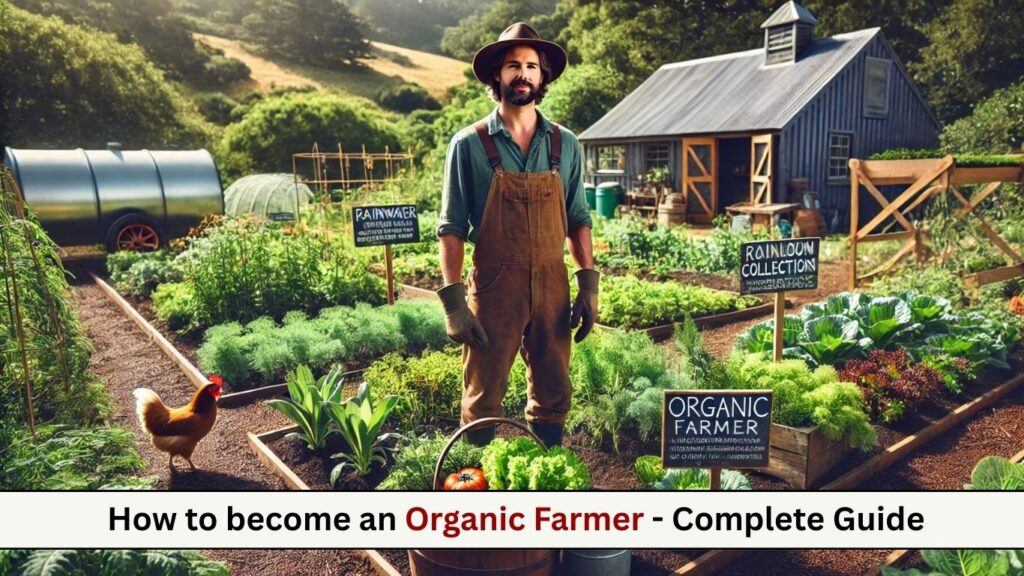
Introduction
Organic farming is revolutionizing agriculture by promoting chemical-free, sustainable food production that protects ecosystems and human health. As consumer demand for organic products skyrockets globally, certified organic farmers are becoming key players in the future of food systems.
This comprehensive guide covers:
- History of organic farming
- Roles & responsibilities
- Salary expectations worldwide
- Required qualifications & certifications
- Step-by-step career path
- Future trends & opportunities
Whether you’re a career changer, agriculture student, or sustainability advocate, this guide provides everything you need to launch a successful organic farming career.
History of Organic Farming
Organic farming isn’t a new concept – it’s a return to traditional agricultural wisdom with modern scientific understanding.
Key Historical Milestones:
- Pre-1900s: All farming was essentially “organic” before synthetic inputs
- 1920s-1940s: Rudolf Steiner’s biodynamic agriculture movement
- 1960s: Rachel Carson’s “Silent Spring” exposed dangers of pesticides
- 1972: International Federation of Organic Agriculture Movements (IFOAM) founded
- 1990s: USDA establishes National Organic Program (NOP)
- 2000s-Present: Global organic market exceeds $180 billion annually
Today, organic farming combines ancient techniques with cutting-edge agroecology to solve modern food production challenges.
Roles & Responsibilities of an Organic Farmer
Organic farmers wear many hats – they’re growers, business owners, and environmental stewards.
Core Responsibilities:
- Soil Management:
- Composting
- Cover cropping
- Natural fertilizer application
- Pest & Weed Control:
- Biological pest control
- Crop rotation
- Mechanical weed management
- Certification Compliance:
- Maintaining organic standards
- Record-keeping
- Inspection preparation
- Marketing & Sales:
- Direct-to-consumer sales
- Wholesale relationships
- Value-added products
- Sustainable Practices:
- Water conservation
- Biodiversity preservation
- Carbon sequestration
Work Environments:
- Small family farms
- Large certified organic operations
- Urban farms & community gardens
- Educational & research institutions
- Organic certification agencies
Organic Farmer Salaries & Job Outlook
Earnings vary significantly by scale, location, and market access.
Global Salary Ranges (2024):
| Country | Small Farm Income | Commercial Farm Salary |
|---|---|---|
| USA | $30,000-$60,000 | $50,000-$120,000 |
| UK | £18,000-£35,000 | £30,000-£60,000 |
| India | ₹2-5 lakhs | ₹5-15 lakhs |
| Australia | AUD 40-70k | AUD 60-110k |
Job Growth Factors:
- 13% annual growth in global organic food demand (FiBL 2023)
- Government incentives for organic transition
- Rising premium prices for organic products
Qualifications & Skills Needed
While no formal degree is required, successful organic farmers need diverse knowledge.
Education Pathways:
- Formal Degrees:
- BSc in Organic Agriculture
- Sustainable Food Systems
- Agroecology
- Certifications:
- USDA Organic Certification
- Certified Naturally Grown
- Permaculture Design
- Essential Skills:
- Deep understanding of soil biology
- Pest management without chemicals
- Business & marketing savvy
- Mechanical aptitude
- Climate adaptation strategies
How to Start an Organic Farming Career
Step 1: Gain Knowledge
- Take courses (Rodale Institute, ATTRA)
- Read “The Organic Farmer’s Business Handbook”
- Attend organic farming conferences
Step 2: Get Hands-On Experience
- WWOOFing (World Wide Opportunities on Organic Farms)
- Apprenticeships
- Start a home garden
Step 3: Choose Your Path
- Market gardening (1-5 acres)
- CSA (Community Supported Agriculture)
- Specialty crops (herbs, mushrooms)
- Livestock integration
Step 4: Secure Land & Certification
- Lease or purchase farmland
- Complete organic certification process
- Develop marketing channels
Step 5: Scale & Specialize
- Add value-added products
- Develop agritourism
- Implement regenerative practices
Future of Organic Farming
The sector is poised for massive growth with several exciting trends:
Emerging Opportunities:
- Carbon Farming: Getting paid for soil carbon sequestration
- Urban Organic Farms: Rooftop and vertical farming
- Blockchain Traceability: Premium prices for verified organic
- Agroforestry Systems: Combining trees with crops
- Organic Inputs Industry: Biological pesticides & fertilizers
Challenges to Address:
- Labor shortages
- Climate change impacts
- Organic fraud prevention
- Transition financing
Conclusion
Organic farming offers a meaningful career that benefits personal health, community wellbeing, and planetary ecosystems. While challenging, it provides financial stability when combined with smart business practices and direct marketing.
The future belongs to farmers who can merge traditional wisdom with modern innovations to create truly sustainable food systems.
Ready to start your organic farming journey? Begin small, keep learning, and join the regenerative agriculture movement!🌱🚜













Post Comment